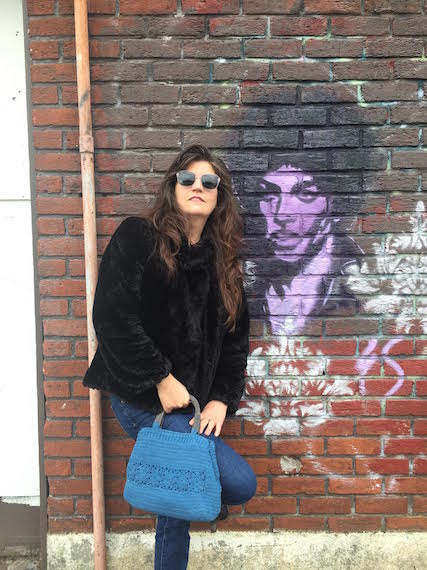A novel of the Oregon soul
interview by Isaac Peterson | photo by Mavis Drake-Alonso
Portland author Monica Drake’s new book, The Folly of Loving Life, traces networks of relationships through subterranean Portland: dive bars, warehouse parties, punk concerts and underpasses. The city of Portland is a major character—sometimes gray and petulant, other times resplendent with natural beauty.
It’s difficult to situate The Folly of Loving Life into any literary genre. Drake’s voice has an inexorable poetic flow that drives the narrative, an ecstatic rhythm distantly related to Kerouac’s. Portland’s stars fade in the glare of newly opened car dealerships. Portland is changing, economically and socially and, for the main character, the change is trauma, not progress. Forests are being cleared to make way for strip malls. Ultimately, it’s a novel of the Oregon soul.
This novel has a ton of Portland street cred. Did you set out to write a celebration of (or elegy for) Portland?
Thank you! I love this city, but I also have some problems with it, and a lot of nostalgia for what used to be here. When I walk through certain parts of town, it’s particularly acute. But then again, I feel that way for the planet, too, in a way. Humans put a lot of wear on a place, and money isn’t the best driving force.
The voices you create for your characters really make this novel special. They seem both simple and unrefined, and wildly creative and poetic. How do you craft these voices?
I credit a deep history of playing with dolls as a child and a compulsion to let inanimate objects speak in imagined voices. Dolls are characters and if you can imagine their lives, you can write stories. The voices also come out of a lifetime of listening to people, thinking about my own life and the way other people live, with an open mind.
Is there a Pacific Northwest literary scene? If so, what do you think are its characteristics?
There’s a great scene here. It’s so rich, it can’t be contained really. In Portland, alone, we have interlocking circles of kitchen-table workshops and readings going on. When I was writing Clown Girl, I came to feel that books out of the Northwest had to speak a little louder, with less subtlety than those written in New York City, because we were farther away from the hub of publishing. Clown Girl was too subtle the first few times I sent it out to publishers, and I ended up cranking up the jokes and the images. But I don’t think that over-the-top element defines writing in the area, necessarily. There are quieter, more subtle books coming out, too. Any statement unifying a style would easily be proven wrong because there are so many authors creating varied and personal work.
What’s your writing discipline? Do you wake up every day at 5 a.m.?
Not at all! I’m a mother and a college professor at the Pacific Northwest College of Art. I’m always juggling, and I go easy on myself when I can’t find time to write. I try not to feel too guilty or concerned about it. I write when I can and the rest of the time I carry ideas around in my head. I consider situations, imagine connections and put pieces together, trying them out until I get a chance to focus.









